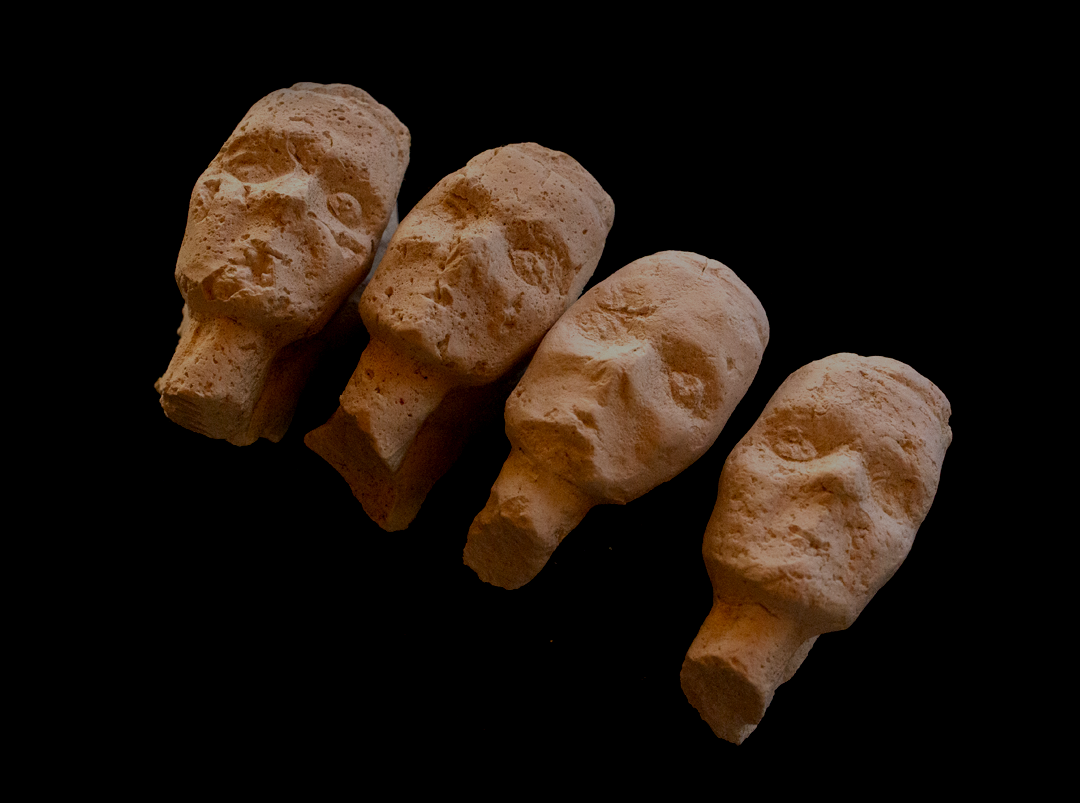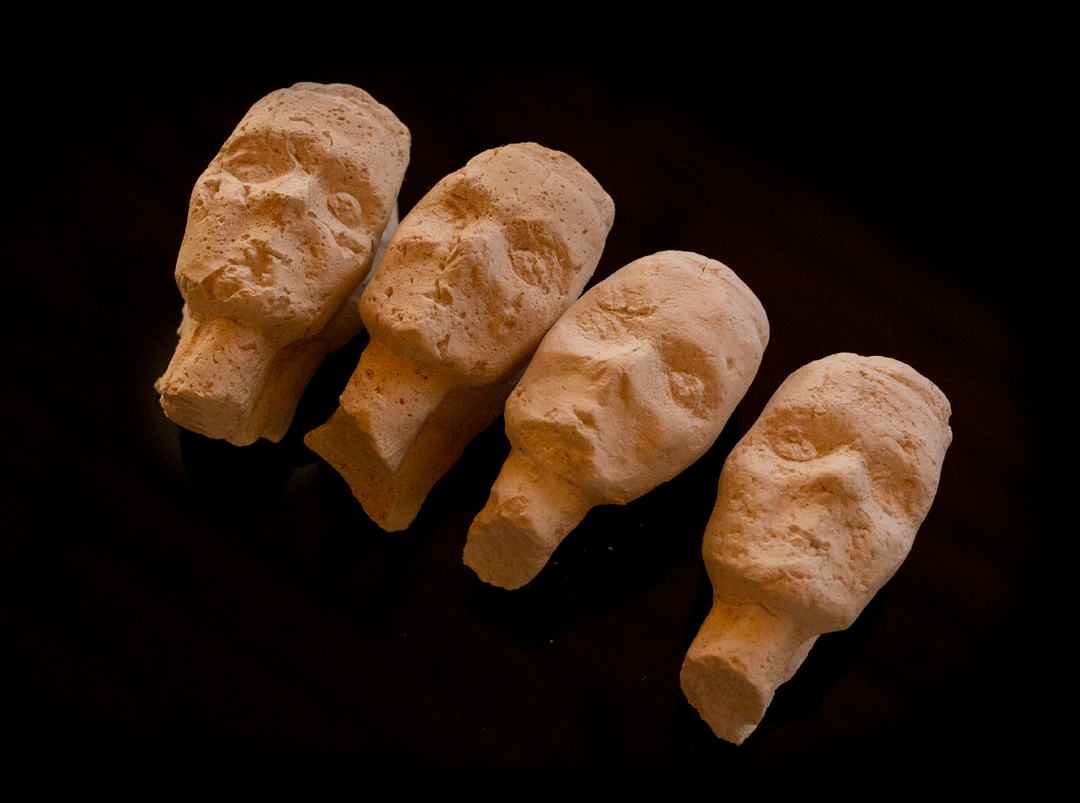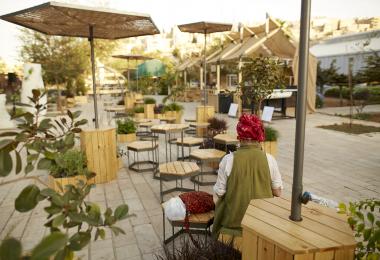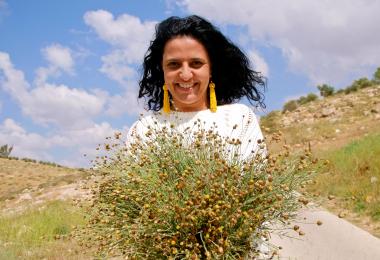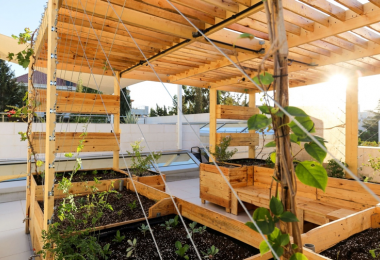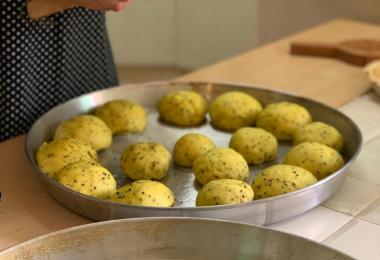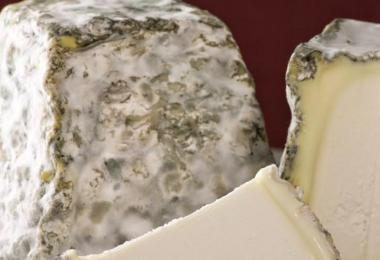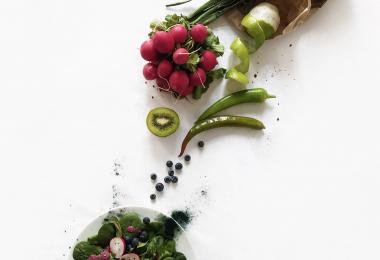Future Food/Future City
Lying at the intersection of science, technology, invention, and design; Amman Design Week 2019 brings designers together with farmers to present new ways of looking at the future of food.
In Arabic, generous people are referred to as the people of the soil - ahl al thara.
This event features short presentations by a number of pioneering individuals and institutions working in Jordan on issues relating to urban agriculture.
Palestine Hosting Society is a live art project that explores traditional food culture in Palestine, specifically those that are on the verge of disappearing.
Nissreen Haram shares her experiences in preserving and protecting artisanal practices in cheese-making, working with the treasured Awassi sheep in Jordan, and shedding light on the urban practice
Sharek Bitbarek is an initiative seeking to redesign the way we consume, interact with and waste food.
Food meets design in the 2019 edition of Amman Design Week, across different exhibitions, disciplines, and mediums. With the Future Food/Future City Showcase, the Material Innovation exhibition, a selection of public talks, and edible jameed sculptures at the Hangar Exhibition, ADW presents the multitude of possibilities that are born out of the marriage between Food and design.
Located in the plaza of Al Hussein Cultural Center in Ras El Ain, the Future Food/Future City Showcase introduces a holistic approach that tackles different parts of the food chain; the way food is grown, processed, transported, consumed, reused, and recycled. Sitting in a public space in Amman, visitors can sample food by Yanbout, grown on-site at the showcase, or by Bayouda organic farms. With participations from Greening the Camps, Collective Studio, Junktion;, Meezan Sustainable Development, The Green Hub, and others, the showcase is an open-air demonstration of possibility.
Sharek Bitbarek; a platform for food recycling, 2019 - Junktion;
Also in light of the Future Food/Future City showcase, there are also a series of talks on food, with guest speakers such as Vivien Sansour speaking about the Palestine Heirloom Project and the preservation of seeds, as well as Mirna Bamieh speaking about the Palestine Hosting Society, and Nissreen Haram, founder of Mistaka speaking about artisanal cheesemaking and the resource of the Awassi sheep in Jordan. A panel on urban agriculture will be moderated by Dr. Mohammad Al Asad from the Center of the Study of the Built Environment, where they will launch their research on the subject and its presence in Jordan.
Vivien Sansour - Ahl El Thara: Eating our History
While designers at the Crafts District experiment with Kombucha and other herbs to create textile alternatives and natural dyes, at the Hangar Exhibition, Omar Sartawi, an Amman-based chef with a specialty in molecular gastronomy, presents his ‘Ein Ghazal’ statue.
Ein Ghazal jameed concrete statue, 2019 - Omar Sartawi
This edible statue is a replica of the Ein Ghazal statue that was discovered in Jordan, currently exhibited in the Louvre - Abu Dhabi. Reinvented with another purely Jordanian product, jameed, the sculpture acquires new physical properties, namely its strength and its resemblance to stone. The replica sculpture challenges the original meaning and purpose of the statue, and questions the erosion of our cultural heritage, while also experimenting with the idea of using jameed for purposes other than food.
Future Food/Future City
Lying at the intersection of science, technology, invention, and design; Amman Design Week 2019 brings designers together with farmers to present new ways of looking at the future of food.
In Arabic, generous people are referred to as the people of the soil - ahl al thara.
This event features short presentations by a number of pioneering individuals and institutions working in Jordan on issues relating to urban agriculture.
Palestine Hosting Society is a live art project that explores traditional food culture in Palestine, specifically those that are on the verge of disappearing.
Nissreen Haram shares her experiences in preserving and protecting artisanal practices in cheese-making, working with the treasured Awassi sheep in Jordan, and shedding light on the urban practice
Sharek Bitbarek is an initiative seeking to redesign the way we consume, interact with and waste food.


